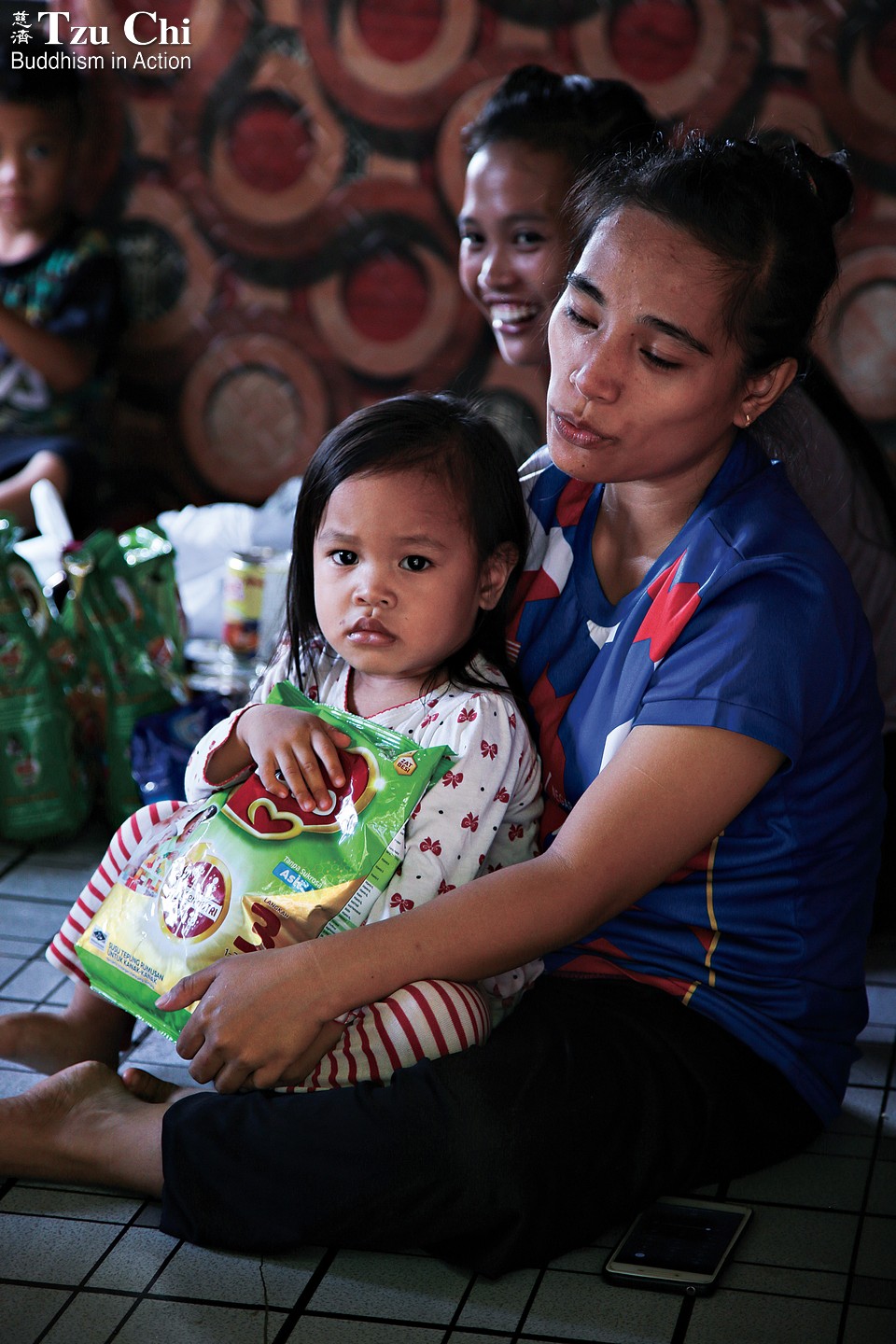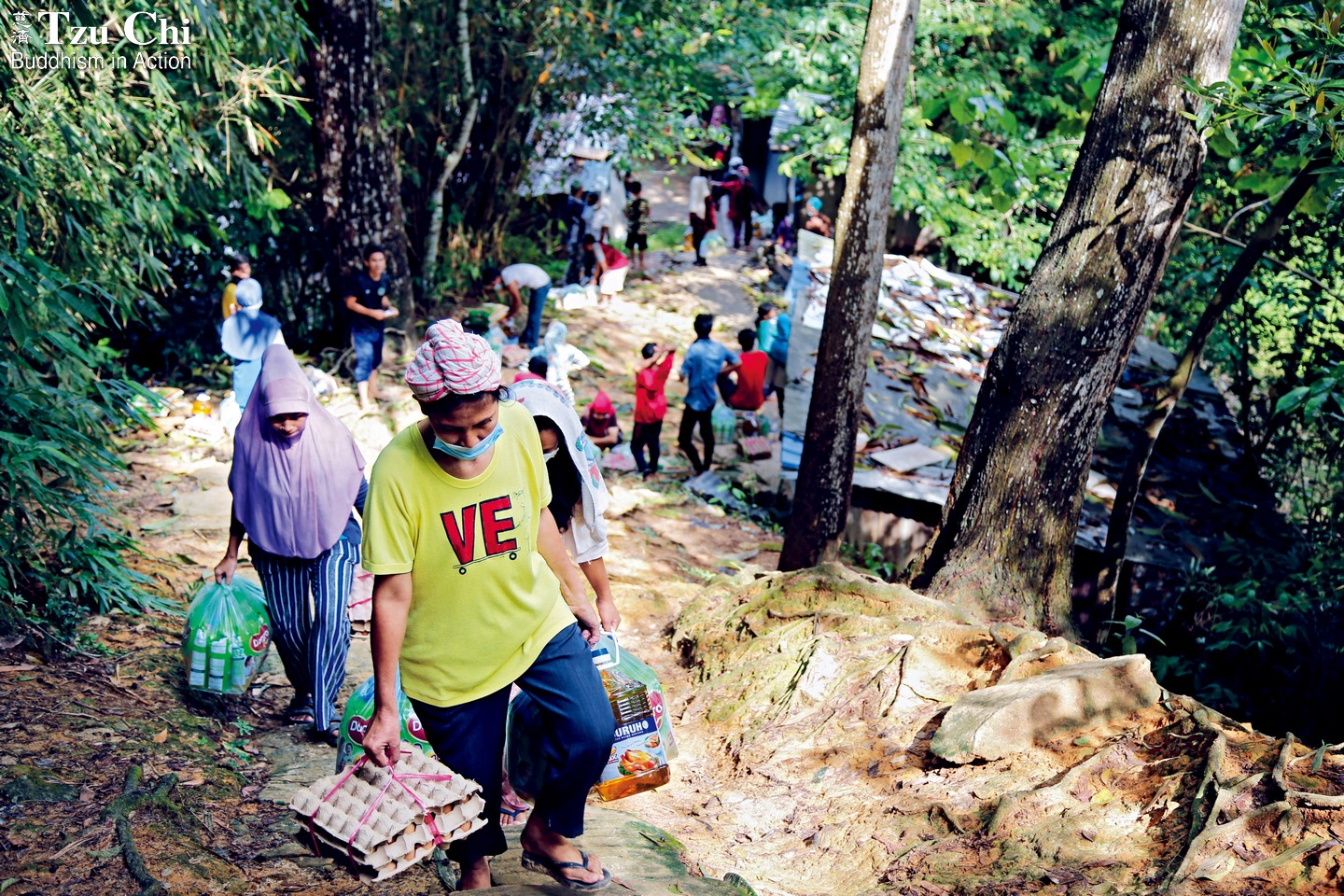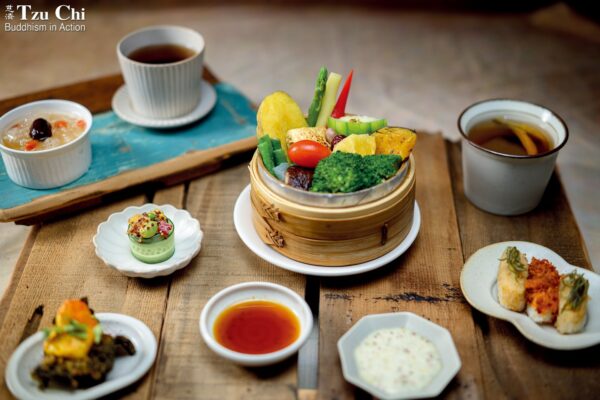By Chuang Ching Chih
Translated by Wu Hsiao-ting
Photos by Liew Zing Yi
Malaysia’s Movement Control Order helped to stem the spread of the coronavirus, but it had another effect as well: stateless people were suddenly thrown out of work.

Rosmawatti Binti Jun’s daughter holds powdered milk distributed by Tzu Chi in her arms, refusing to let it go. She hadn’t had milk in about two months, during which time she drank nothing but plain or sugar water.
The Malaysian government initiated a Movement Control Order (MCO) on March 18 to tackle the spread of the coronavirus pandemic. After more than one and a half months, a Conditional MCO (CMCO) superseded the original MCO. Lockdown restrictions were eased under the CMCO; certain businesses were allowed to resume operations and people were permitted to move about more freely. The Tzu Chi office in Kota Kinabalu, Sabah, reopened during this time. In no time, staffers there were deluged with phone calls asking for help.
Among those asking for help were residents of a nameless village not far from Kota Kinabalu. About 80 to 90 families there needed aid. The villagers were Muslims who were originally from the Philippines, and though they had been born in Malaysia, they hadn’t been able to obtain citizenship. As such, they were stateless. That status limited their job opportunities, leaving them no choice but to work as day laborers to cover expenses. The MCO, originally intended to last two weeks but extended again and again, plunged the entire village into dire straits. Residents didn’t even have enough food to eat.
On May 19, 25 Tzu Chi volunteers set out to the village for a distribution. After arriving at SJKC Yue Min Penampang, a local primary school, the volunteers made the arduous trek on foot up a steep mountain path to their destination. The village was close to Taman Sahabat, a residential neighborhood, so villagers call their community “Kampung Taman Sahabat.” Kampung means “village” in Malay.
Volunteers set up the distribution venue with the help of village leader Murib Bin Kurais. Then they took the villagers’ temperatures, sanitized their hands, and validated their claim checks. Items distributed included emergency cash (160 ringgits [US$38] for each family), rice, cooking oil, powdered milk, and other items. Vehicles couldn’t make it up the path to the village, so after the cash aid was distributed, residents had to walk some way down the mountain to receive their food supplies.
Seventy-three families benefited from this distribution. They were surprised to receive so many practical items from the foundation. The food they received was enough to last each household for a month. They were ineligible for any government aid due to their stateless condition, so the help from Tzu Chi meant a lot to them. It was like timely rain to them.
Village representative Mudanrisa Binti Murib told Tzu Chi volunteers that most of his fellow villagers worked as temps for contractors. Some families had electricity supplied by power generators or solar panels, while others had to rely on candles for illumination at night. Getting by was a struggle for them.
Volunteers thanked each other for helping to make this mission possible. They had a hard time establishing the recipient rosters and purchasing the relief goods, but they felt that everything was worth it when they saw the villagers’ smiles. They were happy to have lived out Master Cheng Yen’s teachings: “If suffering people cannot come to us, we must go to them.”

Villagers return home after receiving aid from Tzu Chi.



